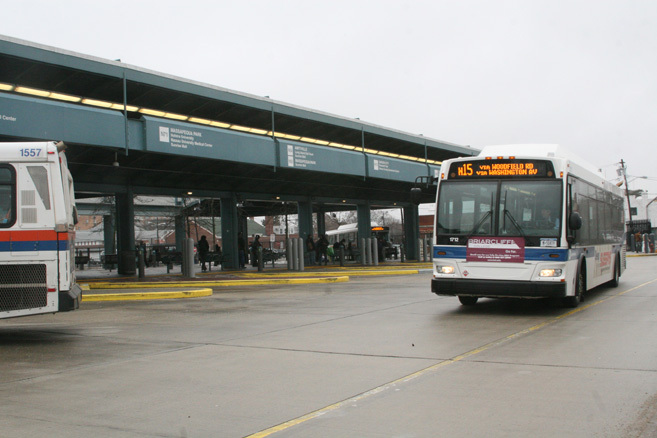MTA cuts LIRR, L.I. Bus service
Come summer, North Merrick residents can wave goodbye to the N53 bus line, a shuttle that loops around parts of North Merrick and stops at the Merrick Long Island Rail Road station.
The Metropolitan Transportation Authority's board voted on March 24 to make its proposed service cuts official. Board members approved a plan that calls for the elimination of the weekday shuttle and fewer peak hour trains on the Babylon line, which stops at both Bellmore and Merrick.
The MTA approved a decision to combine the 7:33 a.m. Babylon train with the 7:40 a.m. peak westbound train and combine the 5:03 p.m. and the 4:57 p.m. eastbound Babylon trains for a projected savings of $1.054 million.
The N53 bus line was discontinued after a Long Island Bus report found that only five people use the line per trip, making the average cost per passenger nearly $20. The report found that by closing the route the MTA would see a net annual savings of $130,000.
"Eliminating the N53 bus line will cause undue hardship for the commuters who rely upon this bus line.," North Merrick Community Association President Claudia Borecky said. "Further, the parking lots at the Merrick train station don't have enough spots as it is."
According to the MTA, proposals were approved or modified with commuter input in mind: The board said it heard more than 500 people at its nine public hearings, and received 7,100 e-mails and 110,000 letters and signed petitions.
"The extent of our deficit requires that most of the cuts move ahead, but we listened to our customers and made changes where we could," MTA Chairman and CEO Jay Walder said in a statement. "We were able to take a number of cuts off the table, but, unfortunately, many of the cuts moving ahead will be painful."
To fill a nearly $800 million budget shortfall for 2010, the MTA proposed major cuts across the board that will include laying off personnel, consolidating functions, reducing overtime costs and wiping out some services. The service reductions will save $93 million a year, according to the MTA.






